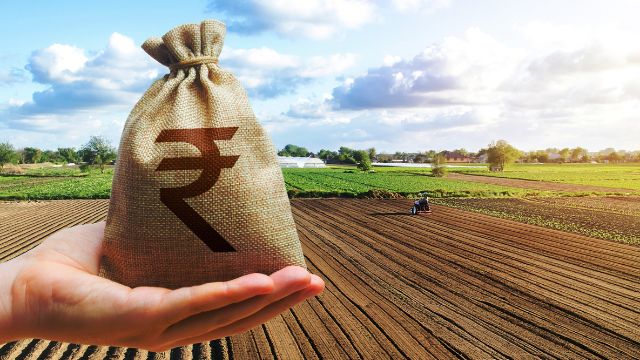In the last few years or so, you may have seen many state governments in the country offering farm loan waivers. The idea here is to help out the farmers who are already in debt. But is it the solution to the underlying problem, or is it just the illusion to keep your eyes away from the actual situation? Well, that’s exactly what we are gonna find out today because today’s post is all about the benefits and drawbacks of farm loan waivers. So yeah, if that’s what you are here for, then keep on reading to clear all your doubts about this whole farm loan waiver thing. Here we go.
Pros Of Farm Loan Waiver
Like always, why not start with what’s actually good with farm loan waivers in India and in most of the states in the country?
1. Quick Relief in Tough Times
When farmers are facing the tough challenges of unpredictable weather and market conditions, getting a loan waiver can be a real game changer. It’s like giving them a helping hand when they need it the most, especially for avoiding financial crises.
2. A Ray of Hope Against a Dark Backdrop
The sad truth is that many farmers, buried under debt, see no way out and tragically end up taking their own lives. Loan waivers in this context can really make a difference, acting like a light at the end of the tunnel during their darkest hours.
3. A Push for Better Farming
These waivers do more than just clear debt, they actually give farmers a chance to put money back into their land. This means they can really get things moving in their fields again, which might lead to a noticeable boost in how much they can grow and produce.
4. Maintaining Political and Social Harmony
Waivers are pretty crucial in keeping the peace and avoiding farming-related stress. This is super important because it’s not just about the farmers. It affects the whole political and social scene too.
5. Steering Clear of High-Interest Loans
With these waivers, farmers don’t have to fall into the trap of unregulated loans that come with crazy high-interest rates. This is a big deal because it protects them from loan sharks and unfair lending practices.
6. Keeping Farmers Farming
Waivers do more than just help with money. They keep our farmers in the fields, which is huge for keeping our food supply and raw material production going strong. It’s all about making sure they have what they need to keep doing their important work.
Cons Of Farm Loan Waiver
Alright, enough with the oh-so-good stuff, now’s the time to take a look at what is going on behind the scenes, shall we?
1. Ripple Effects on the Economy
Just think about it, when waivers are given out, they can really mess up the whole credit system. This can lead to more bad loans (you know, those NPAs) for banks, and let’s not forget, it shakes up the financial stability in the farming world big time.
2. Not Everyone Gets a Fair Share
Now, here’s a major catch. These waivers, they don’t always end up helping everyone. It’s usually the farmers who’ve got loans from the big institutions who benefit. And guess who’s left out? Yeah, the small-time and landless farmers. They hardly see any of that waiver goodness.
3. Just a Quick Fix, Nothing More
Okay, so waivers might seem like a good idea at first, but here’s the thing though, they’re not really solving the big problems. We’re talking about issues like not enough crop yield and sky-high costs for farming stuff. So, while waivers might seem like they’re helping, in reality, they’re just a band-aid solution that keeps popping up.
4. The Pressure on Government Finances
When governments go for waivers, it’s like they’re opening the door to more borrowing and bigger budget deficits. This kind of move can shake up the whole economy.
5. Getting Loans in the Future
After a waiver, banks might start to play it safe and hold back on giving out new loans. This could leave farmers with no choice but to turn to unofficial lenders, who often don’t play fair.
6. A Dangerous Expectation
Waivers can start a trend where everyone just waits for a bailout. It’s risky, not just for farmers but also for the banks. It’s like they’re all gambling, hoping to be saved if things go south.
7. Political Consequences
You might already be aware that loan waivers are frequently seen as a strategy to win votes. And this is where the real problem lies. Instead of acting as an actual fix for the struggles faced by farmers, these waivers often end up being more about politics. It’s like they are used more for gaining political favor rather than truly helping out the farmers in need.
8. Impact on the Wider Economy
Now, let’s talk about what happens when these waivers are put into action. The funds that could have been used for other crucial sectors end up being channeled into these waivers. This shift doesn’t just put extra pressure on us, the taxpayers, but it also messes with the overall health of our economy. It’s like robbing Peter to pay Paul, where the broader economic development takes a hit.
Farm Loan Waiver FAQs
Q1. How Do Someone Get A Loan Waiver?
Ans: First things first, if you find yourself unable to repay a loan, what do you do? The answer lies in applying for a loan waiver. It’s quite straightforward, you need to submit a loan waiver application to your lender. Make sure this application details your financial hardships and clearly explains why repaying the loan is a challenge for you. What happens next? Well, the lender takes over. They’ll review your application meticulously to decide if you’re eligible for a loan waiver. It’s as simple as that!
Q2. Is Farm Loan Waiver Direct Subsidy?
Ans: When we talk about schemes like the Farm Loan Waiver or the PM Kisan Scheme, they’re shining examples of direct subsidies. Why? Because these are upfront aids given directly to you.
Q3. What Happens If Agriculture Loan Is Not Paid?
Ans: Let’s say you’ve taken an agriculture loan and you’re unable to pay it back. What happens then? If you have an account with the same bank that gave you the loan, expect it to be frozen. Yeah, no access until the loan’s cleared. But that’s not all. Your property might also be at risk. In extreme cases, it could be attached or even auctioned to settle the loan amount. It sounds daunting, and it is.
Q4. What Are Indirect Farm Subsidies Examples?
Ans: Indirect farm subsidies don’t directly hand cash to farmers. Instead, they cover essentials like irrigation, fertilizer, power, MSP (Minimum Support Price), and credit subsidies.
Q5. Who Benefits The Most From Farm Subsidies?
Ans: Contrary to what you might think, these subsidies often favor large agricultural businesses more than small, family-run farms. In fact, about two-thirds of these subsidies don’t reach the smaller farms.
Q6. What Is The Need For Farm Credit?
Ans: Credit is crucial in agriculture, acting as the backbone for farmers. It provides access to necessary resources like seeds, equipment, and land, pivotal for successful farming.
Anantha Nageswaran is the chief editor and writer at TheBusinessBlaze.com. He specialises in business, finance, insurance, loan investment topics. With a strong background in business-finance and a passion for demystifying complex concepts, Anantha brings a unique perspective to his writing.



